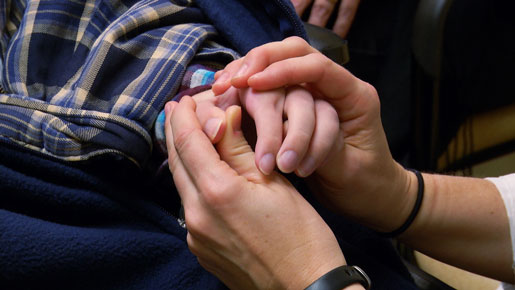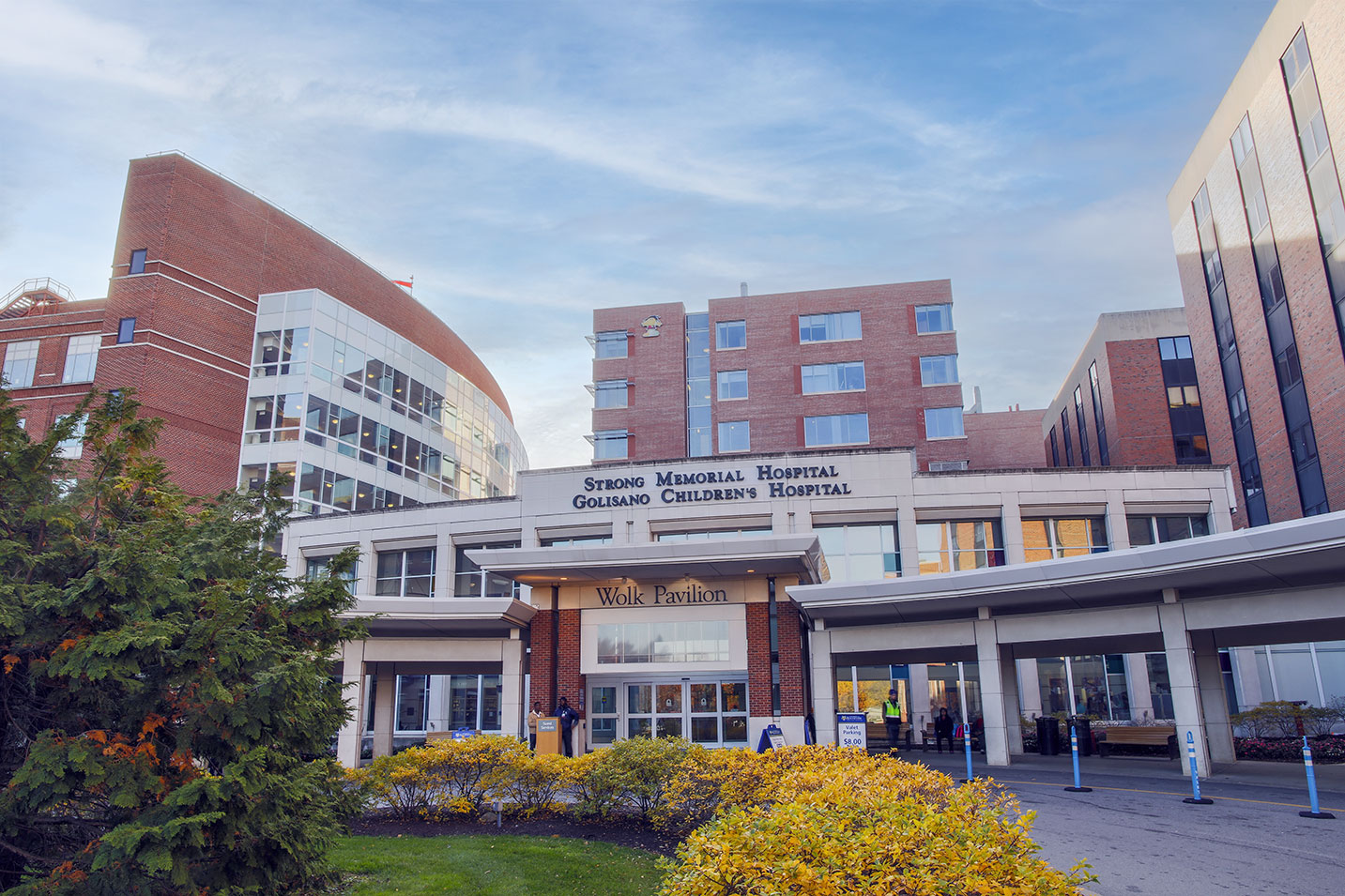Peripheral Neuropathy
Make Appointments & Get Care
What is Peripheral Neuropathy?
Peripheral neuropathy, sometimes shortened to neuropathy, results from damage to the peripheral nervous system, the network of nerve fibers that convey sensory, motor or autonomic information between the central nervous system (brain or spinal cord) and the peripheral body parts (eyes, face, arms, legs, and internal organs).
There are more than 100 types of peripheral neuropathy, making precise diagnosis and specific treatment of these separate conditions challenging.
Symptoms of Peripheral Neuropathy
The symptoms are numerous and non-specific and include:
- Muscle weakness, twitching, or cramping
- Loss of coordination in arms or legs
- Numbness, loss of sensation or feeling
- Loss of balance and falls
- Prickling, tingling, burning sensation
- Sharp, shooting or dull pain, and/or hypersensitivity to touch
- Painless ulcers and amputations
- Foot deformities
- Digestive, urinary, and sexual dysfunction
- Dizziness, heat intolerance
UR Medicine's Treatments for Peripheral Neuropathy
UR Medicine has teams of neurologists and neurosurgeons dedicated specifically to diagnosing and treating peripheral neuropathy.
Advanced testing includes state-of-the-art electrodiagnostic testing; ultrasound; and nerve, skin, or muscle biopsy. Our specialists have expertise in treating all types of neuropathies, including:
- Toxic, nutritional, metabolic, or endocrine neuropathies
- Inflammatory or demyelinating neuropathies
- Inherited neuropathies
- Small fiber sensory neuropathies
- Paraneoplastic neuropathies
- Focal mononeuropathies, plexopathies, and radiculopathies
Specific Conditions We Treat
- Acute inflammatory demyelinating polyneuropathy (e.g., Guillain-Barré syndrome)
- Chronic inflammatory demyelinating polyneuropathy (e.g., CIDP)
- Charcot-Marie-Tooth disease (hereditary neuropathies including amyloid neuropathy)
- Nutritional neuropathies (e.g., thiamine, folate, B6, B12, copper deficiency)
- Toxic neuropathies (e.g., chemotherapeutic drugs, alcohol)
- Diabetic neuropathies
- Various focal neuropathies—carpal tunnel syndrome, cubital tunnel syndrome, radial neuropathy (e.g., Saturday night palsy), fibular neuropathy (cross leg palsy), sciatic neuropathy, tarsal tunnel syndrome, meralgia paresthetica, etc.
- Brachial plexopathy (e.g., neuralgic amyotrophy, thoracic outlet syndrome)
- Lumbosacral plexopathies
- Peripheral nerve tumors—malignant peripheral nerve sheath tumor (MPNST), neurofibroma, schwannoma
We offer disease modifying therapies including immune therapies (e.g., intravenous immunoglobulin infusions, plasmapheresis, various chemotherapeutic regimens), and symptomatic treatments, including neuropathic pain medications; physical and occupational therapy; and orthotic assessments.
For severe focal injuries, our neurosurgeons are experts in a range of procedures, including:
- Cervical decompressive spine surgery
- Lumbosacral decompressive spine surgery
- Brachial plexus surgery (e.g., repair, grafting, thoracic outlet surgery)
- Carpal and cubital tunnel release
- Nerve repair and grafting
- Nerve sheath tumor removal
What Sets Us Apart?
Our neurologists, neurosurgeons, neuropathologists, neuroradiologists, nurse practitioners, electrodiagnostic and ultrasound technicians, physical therapists, and neuro-pain management specialists treat even the rarest conditions.
UR Medicine's Neuropathy Clinic is led by Dr. Eric Logigian, director of the neuromuscular electrodiagnostic laboratory. Our Neuromuscular Disease team has earned “exemplary status” from the American Association of Neuromuscular & Electrodiagnostic Medicine, the highest level of accreditation.
We focus on holistic care and wellness while specializing in non-surgical and surgical treatment options.
We also emphasize patient comfort and convenience. We’ve refined our scheduling system so you can get evaluated and receive testing on the same day.
Support the Neuropathy Clinic
Your donation, no matter the size, brings us closer to life-changing discoveries and treatments. For someone living with a neuromuscular disorder, your support means more than just hope – it means a chance at a fuller, more independent life.

Providers
Locations
View All LocationsWe serve you in the Rochester metropolitan area and surrounding region.
View All Locations5 locations
Ambulatory Care Center at Strong Memorial Hospital
601 Elmwood Avenue, 1st Floor
Rochester, NY 14642
Clinton Crossings, Building C
919 Westfall Road, Suite 210
Rochester, NY 14618
1340 Washington St, Suite 3
Watertown, NY 13061
